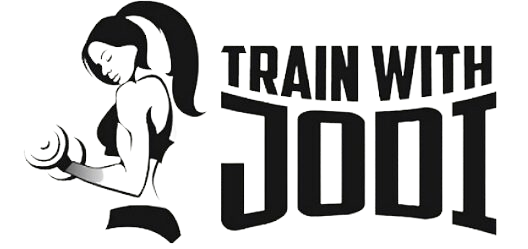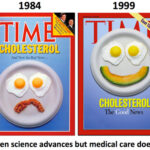I Do Not Eat Breakfast
First and foremost, I am a mom, a busy mom (what mom isn’t?). I’m a mother of two, young, rambunctious boys, an avid lifter, an educator, and a promoter of all things health and fitness…and I do not eat breakfast.
Here and here and here explain a few of the several reasons why I do not eat breakfast.
…But My Kids Do
Mornings are always a whirlwind, but heck who isn’t busy in the morning? With getting myself ready to teach, my two boys packed up and ready for school, cleaning, and chores complete, breakfast is the last thing with which I want to deal. However, I always made it for my kids. I followed conventional wisdom and believed that (even though it wasn’t my most important meal) it may be theirs and it may be “the best way to give them a kick-start in the morning” and “will help them focus better in school.” So even though I never ate breakfast, there I was every morning preparing breakfast for my kids and sometime force-feeding them when they weren’t even hungry because I knew this was the best way for them to be the best…or was it?
For me, not feeling guilty skipping breakfast and really enjoying my coffee has made a huge impact on my overall healthy lifestyle and happiness; meanwhile, social stigmas and numerous sources tell us that breakfast is the most important meal of the day and should NOT be skipped.
So what is the truth?
Naturally, I wanted to discover if any of this information could translate on to my kids. So, I began researching and what I discovered may surprise many of you.
Breakfast’s Magical Ingredients?

Most of us grew up eating breakfast cereal from a box with a bowl of milk and a spoon. Many of these supposedly healthy breakfast cereals are comprised of ground-up corn, wheat or rice, sugar, colors and flavorings. Spend 30 seconds investigating the labels and you’ll find that you might as well just feed your kids donuts or cake for breakfast.

According to the USDA, 73% of kids are eating a sugary cereal for breakfast more than once a week. If the concern is your children going hungry before lunchtime and not focusing in their classes, a sugary ultra-high carb grain-filled breakfast will do exactly that!
If you want to optimize breakfast, research shows that a breakfast higher in proteins and fats keeps kids (and adults) satiated and working more efficiently throughout the morning.
Take a look at the ingredients in what you’re giving your kids each morning. Chances are, they’d be better off skipping breakfast than filling up on sugar, flour, and milk (a carb-comma).
Why Kids Can Skip Breakfast (Or at Least, Skip the Carbs)
So many parents are ( like I was) under the belief that if their child does not eat first thing in the morning (especially) before school, he or she will underperform, suffer undue pain, and resent you into adulthood. However, research actually does not support this. In the research (listed at the end of the post), *healthy kids who skipped breakfast (they ate lunch as their first meal of the day) paid attention, behaved, and performed better throughout the entire day compared to the kids who were fed a typical “healthy” balanced breakfast.
*again this is for healthy, nourished, school-aged kids; NOT babies, infants, toddlers or kids who are underfed, in poverty, stress, or starvation.
Now, I am not saying if your kids are hungry to let them starve. The only point here is that breakfast is definitely not the most important meal of the day. Yes, if they are hungry (or if you are a parent who has a hard time getting your kids to eat enough calories each day), you can feed them breakfast, only this time try leaving the carbs out of it (focus on meats, eggs, cheeses, veggies, nuts, etc…). Chances are they’ll focus better and feel more satiated until their next meal. Don’ worry, they’ll have plenty more snacks and meals throughout the day to have some healthy carbs.
My Kids Have Become Working Machines

The most important thing to remember is that your kids will be FINE if they happen to not eat breakfast on occasion. My kids have thrived with this system. Some days, they’ll wake up and be hungry first thing in the a.m., so we’ll eat some meat and eggs and save our carbs and fruits for later in the day as well as nighttime treats and smoothie desserts. Other days, on their own, they’ll go until 3-4 pm before being hungry. It is usually when they are really focused on a task, like a Lego project, a giant coloring page endeavor, or building a train track system. This is great news and shows that when they are engaged at school on an important assignment that hunger will not jeopardize their work, for they are able to stay satiated. (Unlike kids who eat carb-heavy breakfasts and are hungry every 2-3 hours).
Imagine: no more breakfast battles; your kids getting smarter, paying attention in school, and understanding healthy food choices. Sure, it may take an adjustment, but believe me, the sooner you start the easier and the healthier your kids will be!
My kids now even love packing their own healthy snacks and lunches each day!

My boys always have to contribute to the household. No matter if we are living in the remote jungle lands of Costa Rica or the suburbia of West Palm Beach, each boy contributes his share to our household and is responsible for bettering himself intellectually, academically. (I am a huge proponent of Love and Logic and making my boys responsible citizens of this world).
Reference (Annotated)
1. Lopez I, de Andraca I, Perales CG, Heresi E, Castillo M, Colombo M. Breakfast omission and cognitive performance of normal, wasted and stunted schoolchildren. Eur J Clin Nutr. 1993 Aug;47(8):533-42.
These results suggest that given a motivating short-term task and maintaining routine conditions, missing breakfast does not affect the accuracy of the cognitive performance of children.
2. Simeon DT, Grantham-McGregor S. Effects of missing breakfast on the cognitive functions of school children of differing nutritional status. Am J Clin Nutr. 1989 Apr;49(4):646-53.
The control group was not adversely affected in any of the cognitive tests when breakfast was omitted. They even performed better in arithmetic and were more efficient in problem solving.
3. Dickie NH, Bender AE. Breakfast and performance in school children. Br J Nutr. 1982 Nov;48(3):483-96.
The results from two studies are reported on the effects on mental performance of omitting breakfast. The objective of the first study was to compare the performances of schoolchildren who habitually ate or did not eat breakfast. In the second study the effects of omitting breakfast by those accustomed to eating the morning meal were investigated. Neither study revealed differences attributable to the omission or consumption of breakfast. The results from the present study did not show any performance change in subjects who omitted their accustomed breakfast. The results from the two studies failed to demonstrate that the omission of breakfast is detrimental to late morning performance. This could be because breakfast is unimportant. (the study was even funded by the Kellogg Company)
4. Cueto S. Breakfast and performance. Public Health Nutr. 2001 Dec;4(6A):1429-31. Review.
Negative effects were observed only in children in the at-risk, nutritionally deprived group. Fasting had no ill effect on performance in the control group and they even performed better in the stimuli discrimination test and in a vocabulary test when fasting.
5. Martin A, Normand S, Sothier M, Peyrat J, Louche-Pelissier C, Laville M. Is advice for breakfast consumption justified? Results from a short-term dietary and metabolic experiment in young healthy men. Br J Nutr. 2000 Sep;84(3):337-44.
This study found that a high-energy breakfast destroyed the body’s ability to mobilize fat throughout the day. Although long-term adaptation to a high-energy breakfast cannot be excluded, the high-energy breakfast in this study did not appear to be favourable to health. Their results do not support the current advice to consume more energy at breakfast.
6. Vaisman N, Voet H, Akivis A, Vakil E. Effect of breakfast timing on the cognitive functions of elementary school students. Arch Pediatr Adolesc Med. 1996 Oct;150(10):1089-92.
This study’s results indicate that routinely eating breakfast 2 hours prior to being tested does not improve cognitive functions in 11- to 13-year-old elementary school students
7. Benton D, Slater O, Donohoe RT. The influence of breakfast and a snack on psychological functioning. Physiol Behav. 2001 Nov-Dec;74(4-5):559-71.
In this study, kids who had eaten breakfast, as opposed to fasting, spent longer trying to recall words. On a number of occasions, better memory was associated with lower blood glucose levels (fasting). These findings support previous observations that better glucose tolerance was associated with better memory.
8. Michaud C, Musse N, Nicolas JP, Mejean L. Effects of breakfast-size on short-term memory, concentration, mood and blood glucose. J Adolesc Health. 1991 Jan;12(1):53-7.
This study revealed that concentration appeared to be impaired by a high caloric breakfast.
9. Pollitt E, Leifbel RL, Greenfield D. Brief fasting, stress, and cognition in children. Am J Clin Nutr. 1981 Aug;34(8):1526-33.
Effects of skipping breakfast on speed and accuracy of response in a number of problem solving tasks were assessed in 9- to 11-yr-old, well-nourished children. Fasting had a beneficial effect on immediate recall in short-term memory. The effects are explained by a heightened arousal level associated with the brief experimental fast. Those with higher IQ’s scored better without breakfast. Those with lower IQ’s didn’t.
10. Fernemark H, Jaredsson C, Bunjaku B, Rosenqvist U, Nystrom FH, et al. (2013) A Randomized Cross-Over Trial of the Postprandial Effects of Three Different Diets in Patients with Type 2 Diabetes. PLoS ONE 8(11): e79324. doi:10.1371/journal.pone.0079324
This study showed a moderate low-carb diet (including more fat) produces great results. Also skipping breakfast and eating a bigger lunch seems to be beneficial.
What happens if you combine these two advantages? If you eat a more high-fat low-carb diet AND skip breakfast? This could create more positive effects. It may be one of the reasons that the Mediterranean diet has been associated with good health – they often skip breakfast.
Photo Credits: Tamarindo Family Photos



